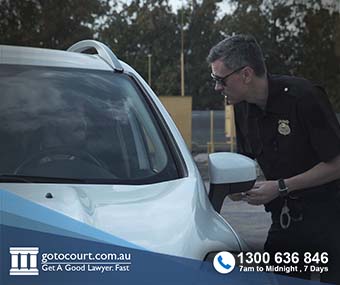Personal Searches in Tasmania
The laws that govern police undertaking personal searches in Tasmania are in the Police Offences Act 1935, the Misuse of Drugs Act 2001, the Poisons Act 1971, the Firearms Act 1996 and the Family Violence Act 2004. Police can search a person or their premises for the purposes of investigating a crime if the owner or occupier consents to the search. They can also search a person who is in custody. If they don’t consent, then a search warrant is needed. This article deals with personal searches in Tasmania.
When can police stop and search a person?
Police are empowered to stop a person, search them, and detain them if:
- they reasonably suspect that they are in possession of something which might be stolen or has otherwise been obtained unlawfully, or
- they have something that they or another person intends to use to commit a serious or indictable offence, or
- they are carrying certain types of poisons, or
- in certain places or circumstances, they are in possession of alcohol.
Personal searches in Tasmania – Firearms
Personal searches in Tasmania may be undertaken if police believe that a person is or has committed, or is about to commit, a firearms offence. They can search the person and anything in their possession and can also stop and search any vehicle.
A person who fails to comply with any of the search requirements can be fined up to $3,080, or imprisoned for up to 12 months, or both.
Personal searches in Tasmania – Family Violence
Particular rules apply for personal searches in Tasmania where family violence is involved.
- Police may, without a warrant and using any necessary force, enter premises to prevent family violence if they are asked by a person who appears to live there, or if they suspect that a person is committing family violence, or that a person has committed, or is likely to commit, family violence.
- Police can search the premises and any person who they suspect may have in their possession any object which may have been used, or that may be used, in committing a family violence offence or that was created in the commission of a family violence offence.
- If the police suspect that a person has a firearm and has committed, or is likely to commit, family violence, they may enter premises, without a warrant and using any necessary force, search for and seize the firearm.
Personal searches in Tasmania – Drugs
Many personal searches in Tasmania relate to drug offences.
- The Misuse of Drugs Act 2001 (MODA) states that, before police can conduct a search of a person or their belongings for drugs, the police must have a reasonable belief that a person has an illegal drug in their possession, including in a vehicle or on an animal. This can include a strip search.
- Police cannot search a person who is on private property unless they formed the belief that the person had drugs in their possession only after police lawfully entered the property.
- When searching a person, the police and any person helping them may use any force that is necessary and reasonable in the circumstances.
- If the police suspect that a person has drugs in their body cavities (such as the vagina or rectum), they must obtain an order of a magistrate to allow a search by a medical practitioner for those drugs.
The Poisons Act 1971 (PA) also provides for police to conduct drug searches. While many powers granted to police for drug searches and their seizure under the PA are similar to the MODA, the PA also allows police to seize money or other valuables.
Procedure for drug searches
When a police officer detains a person for a drug search, they must abide by the rules of procedure. These include:
- If force is used, the police must, within seven days, give the Commissioner of Police a written report of the search, including an explanation as to why the use of force was necessary.
- A strip search should be conducted by someone of the same sex as the person searched.
- If the police suspect that a drug may be present in a person’s body cavities (rectum or vagina), they must get an order from a Magistrate. This order authorises a medical practitioner to search the person’s body cavities, but only those that are specified in the order. The person searched can request that the search is conducted by a medical practitioner of the same sex as they are. This request must be complied with unless it isn’t reasonably practical in the circumstances to do so.
- The medical practitioner who performs the search is also authorised to ask another person to help them. This person should also be of the same sex as the person being searched unless it isn’t reasonably practicable in the circumstances. If a person refuses or fails to submit to the search, the medical practitioner (and the helper) may use reasonable force to conduct the search.
Penalty for failing to comply with personal searches in Tasmania
A person must comply with all of a police officer’s directions in respect of personal searches in Tasmania. The penalty for not doing so is a fine of up to $12,320.
If you require legal advice or representation in any legal matter, please contact Go To Court Lawyers.




